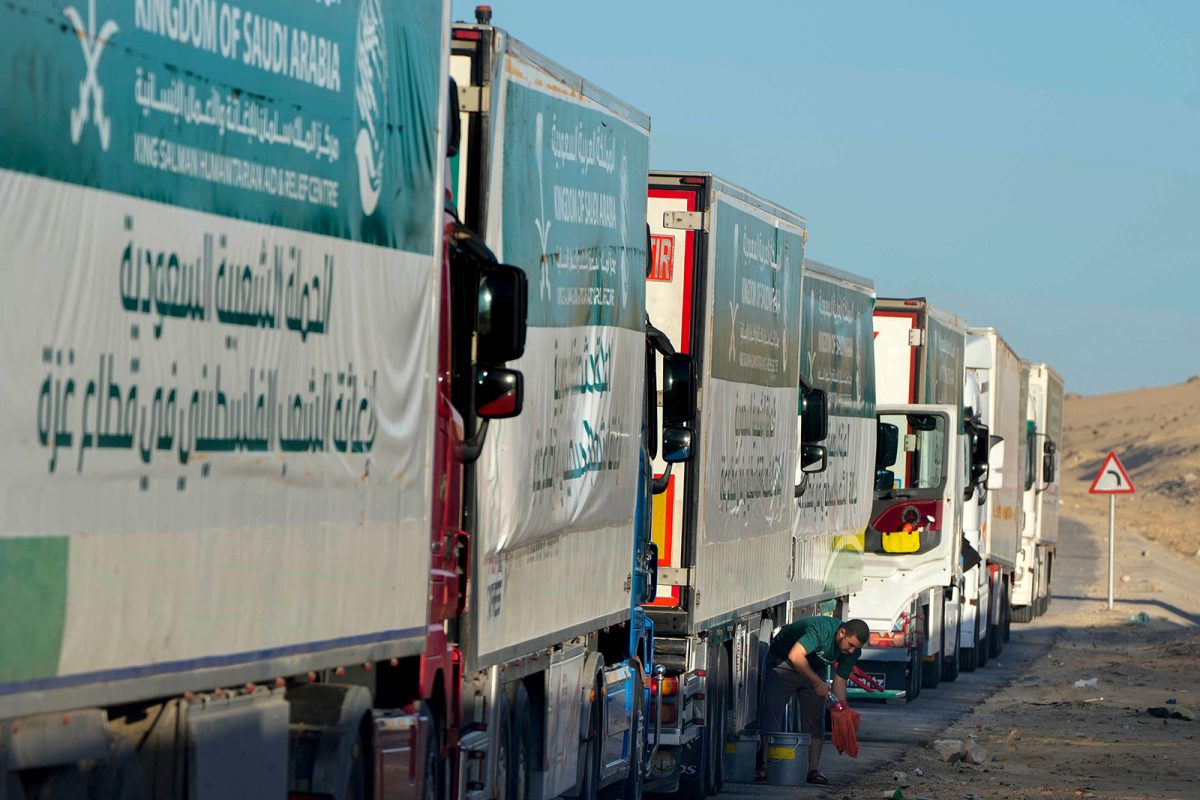In a post on X, formerly Twitter, UN Under-Secretary-General for Humanitarian Affairs and Emergency Relief Coordinator Martin Griffiths said that “this is an impossible situation for people of Gaza and those trying to help them”.
Griffiths named a number of challenges, listing “constant bombardments. Poor communications. Damaged roads. Convoys shot at. Delays at checkpoints”.
“You think getting aid into Gaza is easy? Think again.”
“Three layers of inspections before trucks can even enter,” he added, also citing “confusion and long queues” alongside a “growing list of rejected items”.
UN agencies and aid organizations have said the number of trucks entering Gaza is insufficient to meet basic needs. Before the conflict, the UN reported an average daily delivery of 455 trucks carrying commercial goods to Gaza.
The United Nations agency for Palestinian refugees has also warned that not enough aid is entering besieged Gaza, leaving 40 percent of its population “at risk of famine” amid Israeli curbs on entry of much-needed aid trucks to enter the enclave.
The UN Relief and Works Agency for Palestine Refugees (UNRWA) on Thursday renewed its warning that the besieged enclave is “grappling with catastrophic hunger”, as it reiterated calls for a “humanitarian ceasefire” as non-stop Israeli bombs rained from the north to the southern part of the enclave.
“Every day is a struggle for survival, finding food and finding water,” Thomas White, director of UNRWA affairs in Gaza was quoted as saying on X, formerly known as Twitter.
“The reality is, we need more aid. The only remaining hope is a humanitarian ceasefire,” the agency said on X.
A “total siege” imposed by Israel since the war began on October 7, and following years of crippling blockade, has deprived Palestinians in Gaza of food, water, fuel and medicine. The severe shortages have only been sporadically eased by humanitarian aid convoys entering primarily via Egypt.
Last week, the United Nations Security Council passed a resolution on more aid for Gaza after days of delays, but aid groups and rights advocates described the resolution as “woefully insufficient” and “nearly meaningless”.
More than 80 percent’s of Gaza’s 2.4 million people have been driven from their homes, the UN says, and many now live in cramped shelters or makeshift tents in the far south, in and around the city of Rafah near the Egyptian border.
Earlier, UN World Health Organisation (WHO) chief Tedros Adhanom Ghebreyesus called for “urgent steps to alleviate the grave peril” facing Gaza’s people, including “terrible injuries, acute hunger and … severe risk of disease”.
Last week, a UN-backed report warned that the entire 2.3 million population of Gaza is facing crisis levels of hunger, with 576,600 people at catastrophic – or starvation – levels.
According to the report, published by 23 UN and non-governmental agencies, the proportion of households in Gaza affected by high levels of acute food insecurity is the largest ever recorded globally, eclipsing even the near-famines in Afghanistan and Yemen of recent years.
Israel’s relentless aerial bombardment and ground invasion have killed at least 21,320 people, mostly women and children, according to Gaza’s health ministry.
